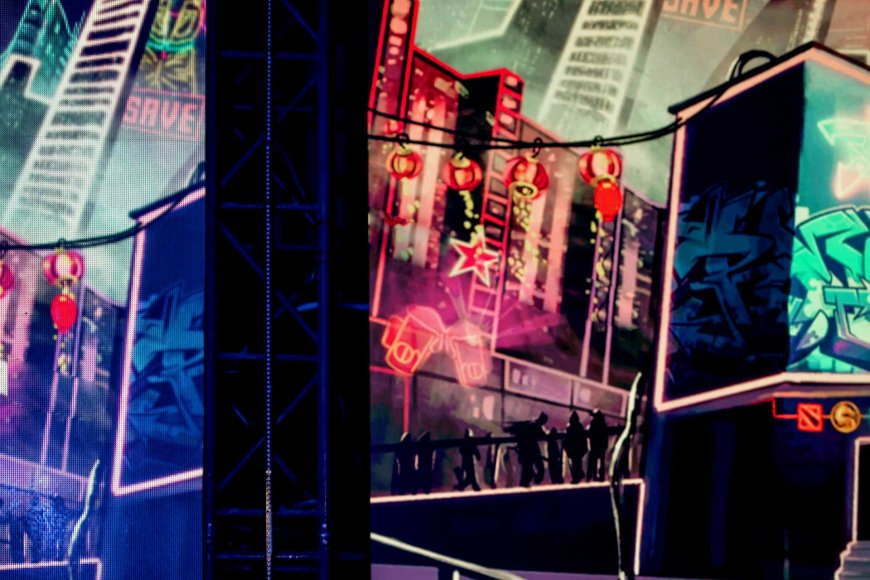The Evolution and Culture of Otaku in Japan
Once regarded with disdain, Otaku culture has grown to become a significant and celebrated part of Japanese society.

The Evolution and Influence of Japan's Most Passionate Fandom
In Tokyo's vibrant Akihabara district, amidst the dazzling neon lights and bustling electronics shops, a unique subculture thrives: the world of Otaku. This term, which once bore a negative connotation, has evolved to represent a dynamic and influential segment of Japanese culture. Otaku, referring to individuals with intense interests, often in anime, manga, and video games, have carved out a significant niche, influencing both domestic and international pop culture.

Historical Context
The term "Otaku" originated from a polite second-person pronoun used in Japanese. In the early 1980s, it was popularized by essayist Akio Nakamori in a series of articles in the magazine Manga Burikko, where he described a peculiar subset of manga and anime fans. These fans were characterized by their obsessive behavior and deep knowledge of their interests, often at the expense of social interactions. Initially, the term was pejorative, associated with social awkwardness and a retreat from societal norms.

Otaku Subcultures
Over the decades, Otaku culture has diversified into various subgroups, each with its own unique focus. Here are a few prominent examples:
1. Anime Otaku
Devotees of Japanese animation, these fans immerse themselves in the intricate worlds and narratives created by anime series and films. They attend conventions, collect merchandise, and often engage in cosplay, dressing up as their favorite characters.
2. Manga Otaku
Enthusiasts of Japanese comics, or manga, who often possess extensive collections and in-depth knowledge of different genres and artists. They may also create fan art and participate in doujinshi (self-published works) circles.
3. Gamer Otaku
Video game aficionados who dedicate countless hours to mastering their favorite games, attending gaming events, and sometimes even developing their own games or modifications.
4. Idol Otaku
Fans of Japanese pop idols, who follow their favorite performers with fervor. They attend concerts, buy extensive amounts of merchandise, and actively support their idols through various fan activities.

The Changing Perception of Otaku
In the 1990s and early 2000s, Otaku culture began to gain more mainstream acceptance. The explosion of the anime industry, with internationally acclaimed works like Neon Genesis Evangelion and Pokémon, played a significant role in this shift. As anime and manga gained global popularity, being an Otaku became less stigmatized and more a badge of niche expertise.

The internet further propelled this transformation. Online communities allowed Otaku to connect with like-minded individuals across the globe, share their passions, and create vibrant fan cultures. Websites like 2chan (the precursor to 4chan) and later social media platforms became hubs for Otaku interaction, spreading their influence even further.
Economic and Cultural Impact
Otaku culture has had a profound impact on Japan's economy. The market for anime, manga, and related merchandise is a multi-billion-dollar industry. Akihabara, often dubbed "the Otaku capital of the world," is a testament to this economic influence, with countless shops, themed cafes, and arcades catering to every facet of Otaku interest.

Moreover, Otaku culture has also left its mark on global pop culture. International anime conventions, cosplay events, and manga cafes have sprouted up worldwide, bringing a piece of Japan's vibrant subculture to a global audience. Shows like Naruto, Dragon Ball, and Attack on Titan have achieved cult status, influencing Western media and inspiring new generations of fans.
The Otaku Identity Today
Today, the term Otaku is embraced with pride by many who identify with it. It signifies a deep passion and dedication to one's interests, whether that be in the world of anime, manga, video games, or even niche areas like train spotting or model building. The Otaku community is diverse and inclusive, offering a space for individuals to express themselves and connect over shared passions.

In Japan, Otaku culture continues to evolve, reflecting broader societal changes and technological advancements. The rise of virtual YouTubers (VTubers), for instance, is a testament to the ever-expanding horizons of Otaku interests. These digital personalities, often represented by anime-style avatars, have garnered massive followings, blending entertainment, fandom, and technology in new and exciting ways.

Shaping Cultural Landscapes with Passion and Creativity
The journey of Otaku culture from a stigmatized subculture to a celebrated and influential community is a remarkable narrative of societal transformation. It highlights the power of passion and community in shaping cultural landscapes. As Otaku continue to push the boundaries of creativity and fandom, their influence will undoubtedly persist, both within Japan and across the world. Whether you're a seasoned fan or a curious newcomer, the world of Otaku offers a rich and fascinating array of modern Japanese culture to explore.
Find Cheap Flight Tickets to any Destinations in Japan and the Philippines
Nipino.com is committed to providing you with accurate and genuine content. Let us know your opinion by clicking HERE.






























































